Colitis and irritable bowel syndrome
Learning more about them to truly overcome them
Is your colitis not going away? The cause could be food-related inflammation.
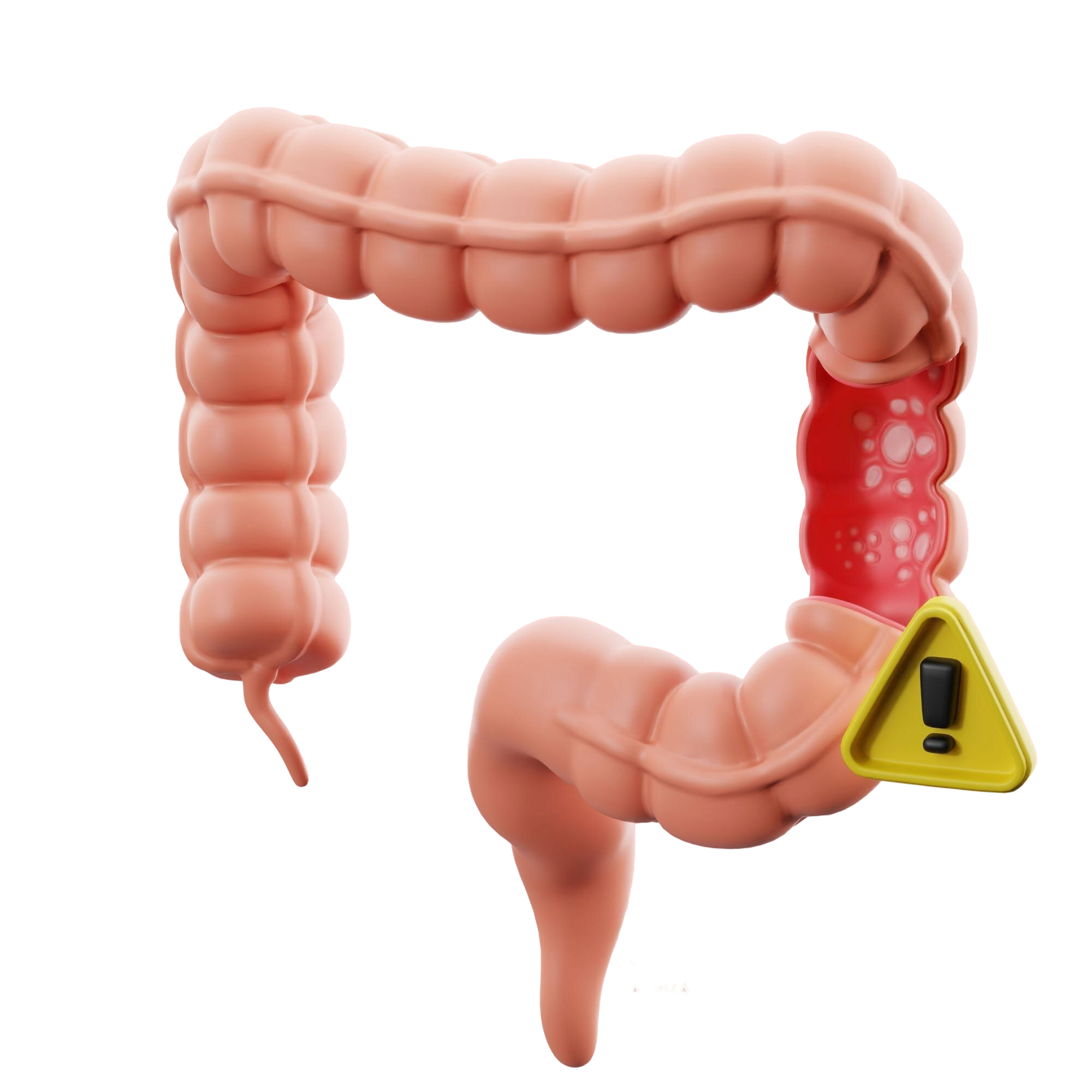
- Colon inflammation, often recurrent
- Symptoms: bloating, cramps, diarrhea/constipation, bowel urgency.
- it can be functional (like irritable bowel syndrome) or organic (like ulcerative colitis).
- Silent chronic inflammation
- Food groups that cause inflammation
- Stress and immune dysregulation
- Alterations of the gut microbiota
The immune system can react abnormally to certain foods, causing persistent inflammation.
Treat with Recaller Medical Program
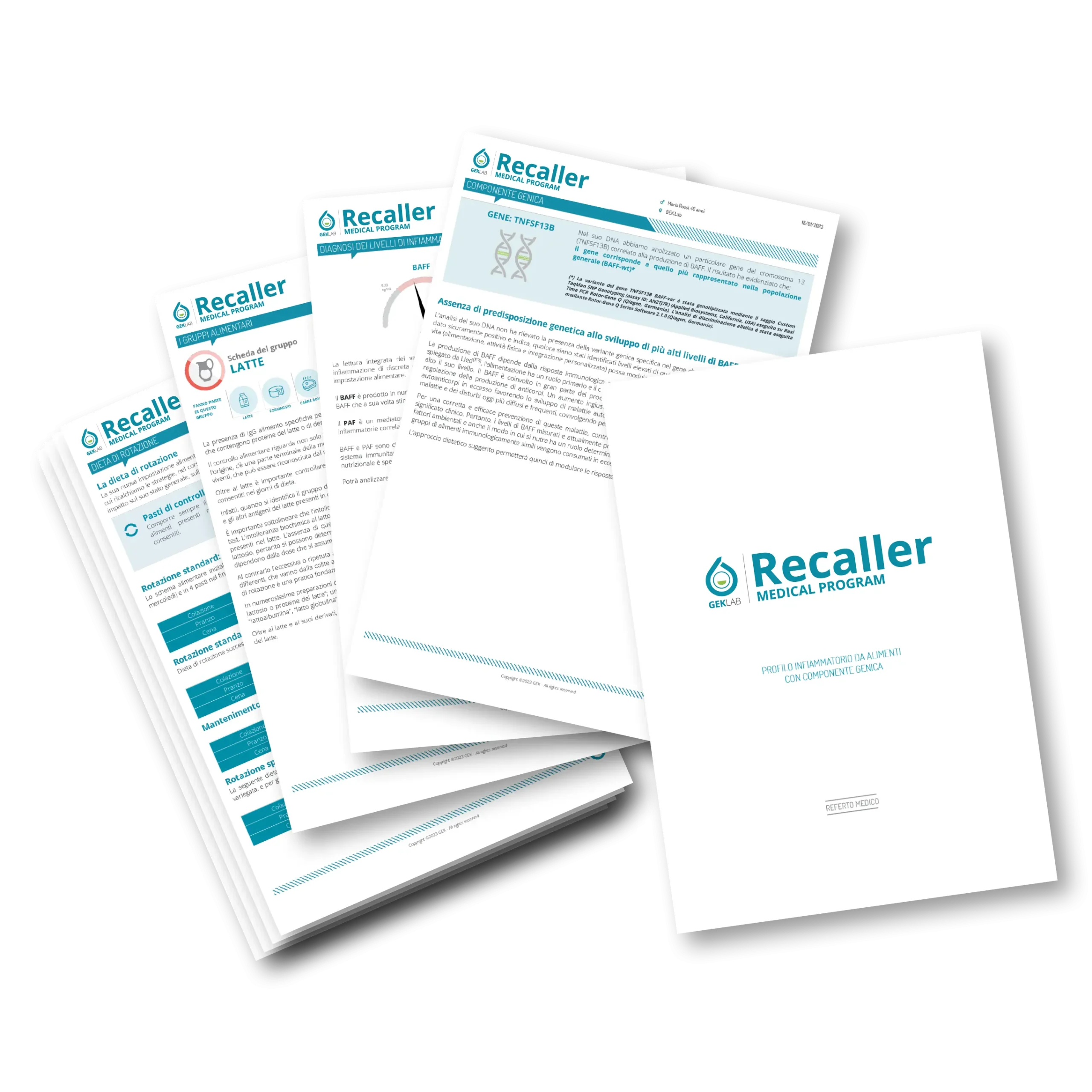
Simple test, clear results
- Repeated excessive food consumption (IgG)
- The low grade inflammation (BAFF, PAF)
- The interaction between inflammation and certain foods
- Which Food Groups cause inflammation
- If there is a latent inflammatory state
- Which diet to follow to improve
- Symptom reduction
- Better digestion
- More mindful eating
- Greater control over inflammation
- Which food groups you consume excessively in your diet
- if there is a latent inflammatory state, which may also be linked to other symptoms (difficulty losing weight, recurring headaches, acid reflux)
- If you are genetically predisposed to autoimmune diseases

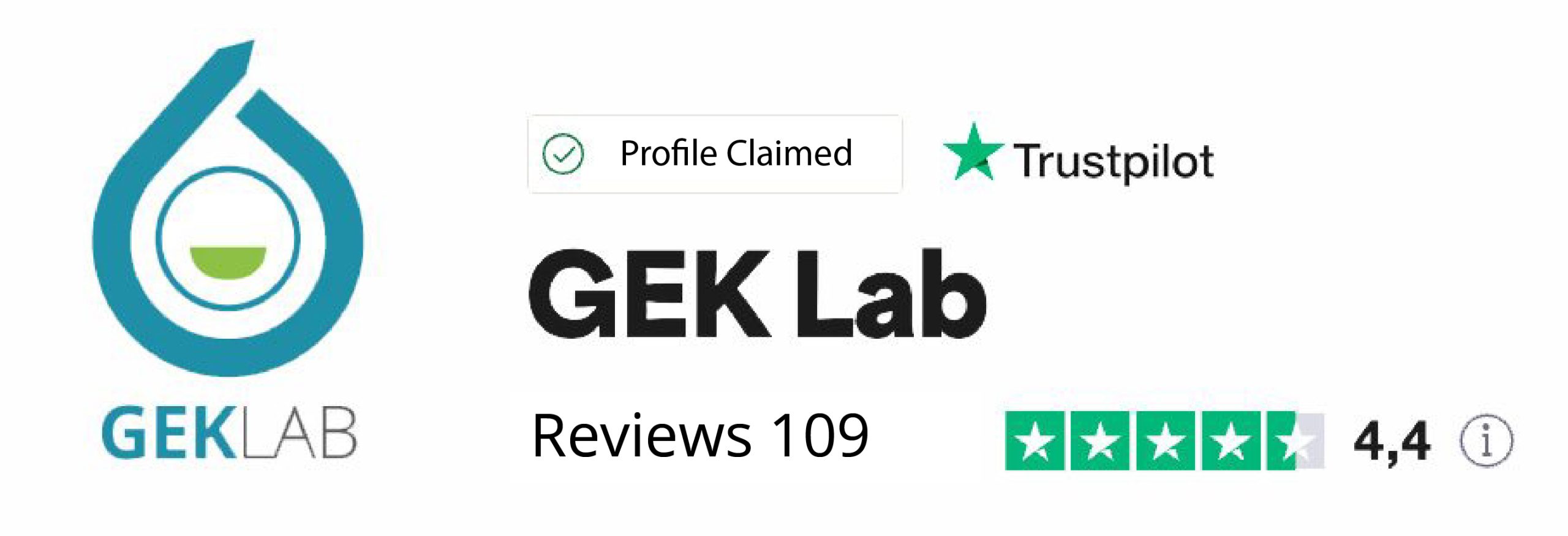

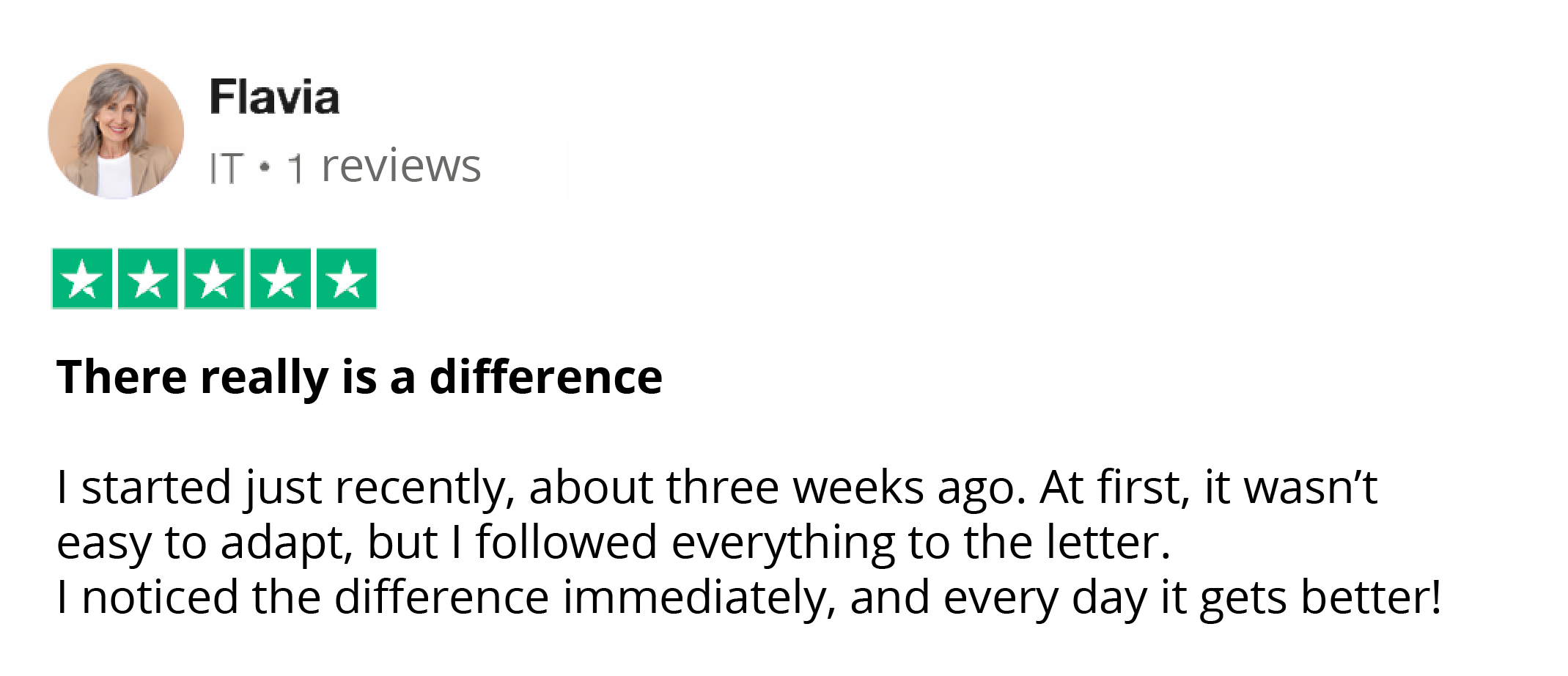
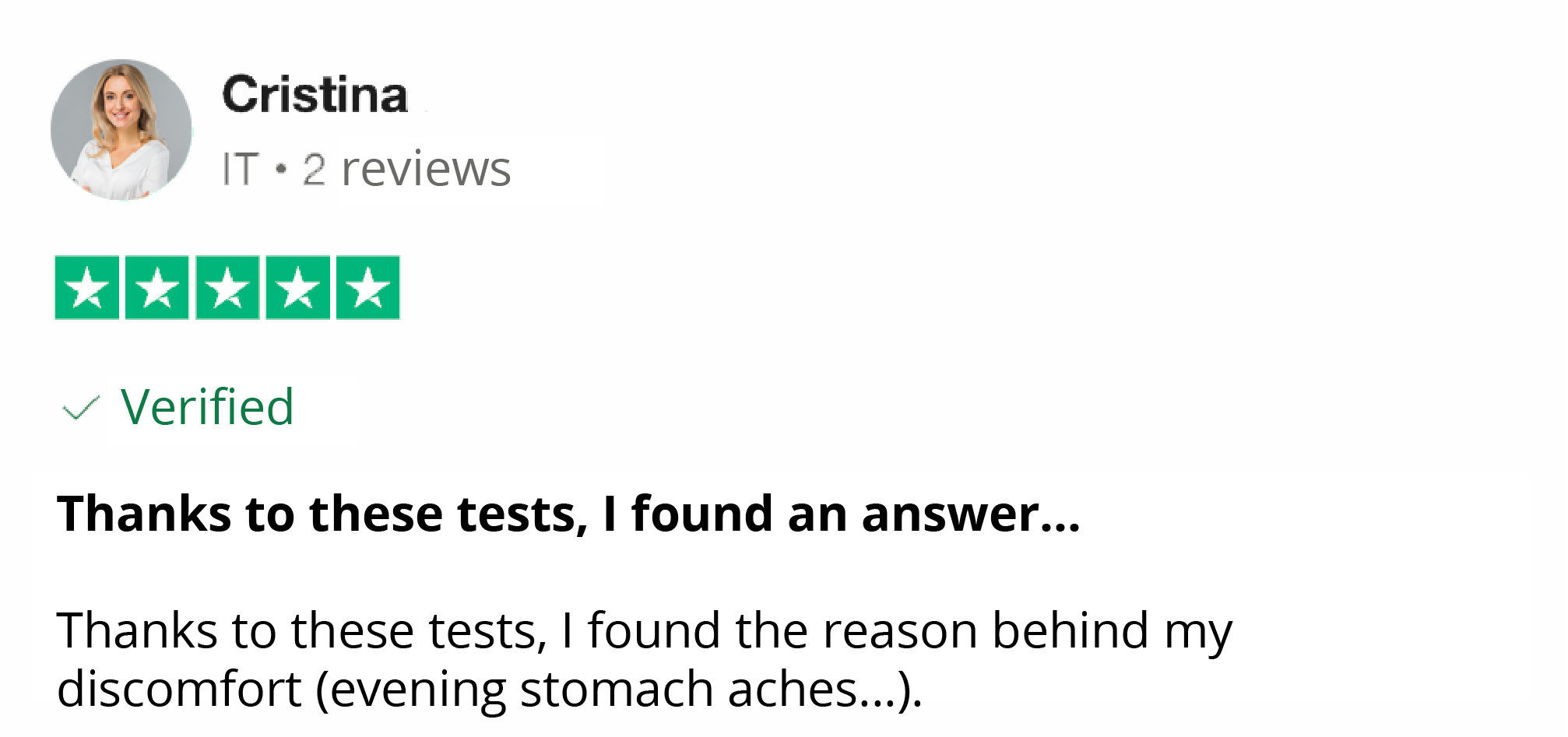


How does it work in practice?
Fill out the form and you will conveniently receive your personal kit at home, with everything you need to perform the test
The kit contains a clear, illustrated guide. The sample collection is simple, quick, and non-invasive: it only takes a few minutes.
In the package, you will find a prepaid envelope for free sample pickup. We take care of everything.
In about 7 days, you will receive a complete medical report by email, highlighting the food groups that contribute to inflammation. Along with the report, you will also receive personalized dietary advice to improve your diet and address the symptoms.

Frequently Asked Questions
Yes. The test was developed by GEK Lab and is performed in their own laboratory. It is based on innovative and clinically validated markers, selected from the most recent scientific evidence. The test does not merely detect generic antibodies but measures the individual inflammatory response to specific food groups, providing a much more accurate and useful analysis for those suffering from chronic disorders such as colitis. The Recaller Medical Program is currently used by doctors and nutritionists throughout Italy to personalize dietary therapies with a scientific, safe, and validated approach.
No, a medical prescription is not required.
The test can be ordered directly online and will be conveniently delivered to your home, along with all the instructions to collect the sample easily and safely.
However, if you are under the care of a doctor or nutritionist, you can share the test results with them to integrate the data into your treatment plan.
The report is clear, detailed, and designed for clinical use as well.
Not necessarily. Colitis may be linked to other food groups. Recaller helps you identify which foods, in your specific case, should be reduced in frequency because they contribute to inflammation.
Taking probiotics is not always the right approach. Probiotics can be excellent tools, but when it comes to discomfort and dysbiosis, they are often not enough on their own. Probiotics alone cannot resolve the symptoms. The Recaller Medical Program helps you identify exactly which food groups are contributing to your problem and explains how to rotate them in your weekly diet to restore your well-being.
Because it’s not individual foods that cause inflammation, but rather the repeated or excessive consumption of different foods that belong to the same food group. Sometimes these foods may look very different from one another (such as cheese and mushrooms, or milk and beef), making it difficult to clearly identify cause-and-effect relationships.
The Recaller Medical Program measures your immune system’s level of alert toward these food groups and guides you on how to rotate them in your weekly diet, gradually reintroducing them and reducing inflammation.





